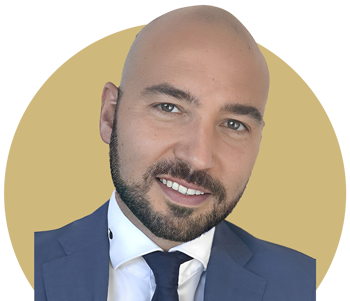Driving Breakthroughs in Multiple Sclerosis
Multiple sclerosis, or MS, affects several million people worldwide, with Colorado claiming one of the highest rates in the country. About one in 360 people in our state has MS, and women with the disease outnumber men by about three to one. Most often diagnosed between the ages 20 to 40, MS generally strikes patients during the prime of life.
While progress has been slow – there is no known cure and it is only since 1993 that any MS treatments have been available – our faculty have been at the center of basic research and clinical trials for decades. Our scientists seek to better understand the progressive and unpredictable disease, which scars the protective myelin sheath around nerves of the central nervous system, causing wide-ranging symptoms that can change over time.
Today, multidisciplinary teams of researchers and providers at CU Anschutz are on the precipice of great change – shaping a future in which MS is better understood, detected earlier and treated more effectively.
Seeking Causes & Cures
The Rocky Mountain MS Center at the University of Colorado (RMMSC at CU) operates one of the largest MS research programs in the world and sees 4,500 patients every year at UCHealth University of Colorado Hospital, and several hundred more at Children’s Hospital Colorado, the Rocky Mountain VA Regional Medical Center and Denver Health Medical Center. With a biorepository and tissue bank housing thousands of samples, the center is invaluable to our own researchers and investigators worldwide.
The RMMSC at CU is a hub of MS research and care, with dozens of studies and clinical trials underway. A pair of current studies is exploring risk factors for and causes of MS by studying young, asymptomatic first-degree relatives of those with the disease.
Risk factors for MS are both genetic and environmental in nature, including about 230 genes known to alter risk of developing the condition. First-degree relatives of those with MS have a 5- to 10-fold increased risk of developing the disease.
Ben Limmer was eager to help when he learned about the RISE-MS study led by Enrique Alvarez, MD, PhD, Teri Schreiner, MD, MPH, and RMMSC medical director John Corboy, MD, MA. Ben is one of 200 participants taking part in MRI scans, blood work and environmental risk surveys to help researchers better understand MS’s origins.
“My dad and his sister were both diagnosed with MS when I was young,” Limmer said. “We know so little about family connections relating to MS, so this was a special opportunity.”
Ben is pictured above, third from left, with his father, Randy, his mother, Susie, and his partner, Austin.
“Having the opportunity to participate in research was an excellent way to give back and honor those living with MS.” - Ben Limmer

RISE-MS ‒ along with a companion study called DREAMS for relatives of pediatric MS patients ‒ is a collaboration between neurology faculty with Chris Gignoux, PhD, at the Colorado Center for Personalized Medicine and Jill Norris, PhD, MPH, at the Colorado School of Public Health. The goal is to create a risk profile that will help providers identify MS in those vulnerable to the disease before symptoms even begin. The team is optimistic about the long-term ramifications of the studies for patient care, as the participant data provides insights on the earliest stages of MS. “This work will hopefully enable us to diagnose patients earlier and prevent the accumulation of disability often associated with this disease,” Alvarez said. For Ben Limmer, research is key to improving the lives of those with MS. “My dad has always opted into the newest, most progressive treatment options available to him and, luckily, has had a great heath outcome so far,” he said. “So, having the opportunity to participate in research was an excellent way to give back and honor those living with MS.” No single test can detect MS, and the road to diagnosis can be long given the variety of associated symptoms, which can include fatigue, difficulty with balance and coordination, visual problems, impaired mobility, depression and cognitive issues. Current diagnostic methods are complex, costly and often invasive, including MRIs, neurological exams and spinal taps.A Simple Blood Test with Great Promise
“If the disease can be caught earlier, the patient responds better, and their MS doesn’t move to the progressive stage as quickly.” - Xiaoli Yu, PhD

Xiaoli Yu, PhD, and the members of her lab are working to change this reality. They’ve developed a simple blood test that, if proven accurate, could drastically speed diagnostics in most any clinical lab environment, leading to earlier diagnosis and ultimately better care.
A lack of effective drugs for progressive MS has created an unmet clinical need, highlighting the importance of early detection.
“If the disease can be caught earlier, the patient responds better,” Yu said, "and their MS doesn’t move to the progressive stage as quickly.”
The team has shown 90% accuracy in the test’s ability to identify MS biomarkers in a single drop of blood, offering tremendous promise for earlier detection. The test could also assist providers in monitoring patient response to different therapies and even help predict disease progression.
Cause for Optimism in Stem Cells
Our researchers may also be on the brink of using stem cell therapies to treat progressive MS and slow its harmful effects.
Angelo D’Alessandro, PhD, is part of an international team that conducted an early-stage, 12-month trial demonstrating that injection of a type of stem cell into the brains of MS patients may help protect the brain from further damage.
Fifteen participants, each with a high level of disability due to advanced MS, took part in this first-in-human trial in which patients were transplanted with neural stem cells. Over the course of the year following stem cell injection, no worsening of symptoms or cognitive function was observed in the patients, pointing to potential stability of the disease.
In a subset of patients assessed for changes in brain tissue associated with disease progression, the team also found that the larger the dose of injected stem cells, the better the patients responded, as assessed by functional imaging of the brain and metabolism.
“This study can give hope to patients.” - Angelo D’Alessandro, PhD

The samples from this novel trial provided D’Alessandro a one-of-a-kind opportunity to directly investigate the impact of transplanted stem cells in the brains of those with MS. Having shown stem cell treatment to be safe and the patients stable, the phase 1 trial marks a major stride forward in the development of advanced cell therapy treatment for progressive MS and paves the way for the next phase of investigation.
“This breakthrough approach turned out not only to be safe but also promising, and that’s why we’re excited about the ongoing phase 2 of the clinical trial,” D’Alessandro said. “This study can give hope to patients.”
Building Awareness
March is MS Awareness Month ‒ an opportunity to spread knowledge about MS and hope for the future. We have much to take pride in, as our faculty continue to uncover new possibilities in MS diagnosis and treatment.
And as Ben Limmer notes, research is key. “We need people to participate in research studies to continue evolving our understanding and treatment options,” he said. “It’s vital for helping researchers better understand MS and develop more life-improving treatments.”
Sincerely,

Don Elliman